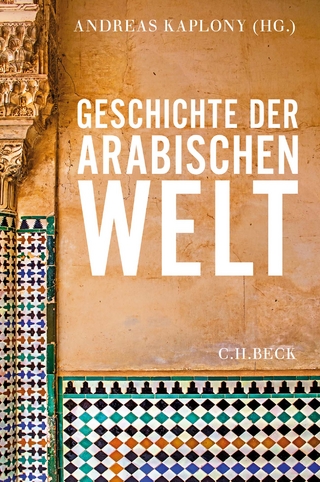
Spiritual Subjects
Central Asian Pilgrims and the Ottoman Hajj at the End of Empire
Seiten
2020
Stanford University Press (Verlag)
978-1-5036-1017-0 (ISBN)
Stanford University Press (Verlag)
978-1-5036-1017-0 (ISBN)
At the turn of the twentieth century, thousands of Central Asians made the annual pilgrimage to Mecca. Traveling long distances, many lived for extended periods in Ottoman cities dotting the routes. Though technically foreigners, these Muslim colonial subjects often blurred the lines between pilgrims and migrants. Not quite Ottoman, and not quite foreign, Central Asians became the sultan's spiritual subjects. Their status was continually negotiated by Ottoman statesmen as attempts to exclude foreign Muslim nationals from the body politic were compromised by a changing international legal order and the caliphate's ecumenical claims.
Spiritual Subjects examines the paradoxes of nationality reform and pan-Islamic politics in late Ottoman history. Lâle Can unravels how imperial belonging was wrapped up in deeply symbolic instantiations of religion, as well as prosaic acts and experiences that paved the way to integration into Ottoman communities. A complex system of belonging emerged—one where it was possible for a Muslim to be both, by law, a foreigner and a subject of the Ottoman sultan-caliph. This panoramic story informs broader transregional and global developments, with important implications for how we make sense of subjecthood in the last Muslim empire and the legacy of religion in the Turkish Republic.
Spiritual Subjects examines the paradoxes of nationality reform and pan-Islamic politics in late Ottoman history. Lâle Can unravels how imperial belonging was wrapped up in deeply symbolic instantiations of religion, as well as prosaic acts and experiences that paved the way to integration into Ottoman communities. A complex system of belonging emerged—one where it was possible for a Muslim to be both, by law, a foreigner and a subject of the Ottoman sultan-caliph. This panoramic story informs broader transregional and global developments, with important implications for how we make sense of subjecthood in the last Muslim empire and the legacy of religion in the Turkish Republic.
Lâle Can is Assistant Professor of History at The City College of New York, CUNY.
1. Rewriting the Road to Mecca
2. Sufi Lodges as Sites of Transimperial Connection
3. Extraterritoriality and the Question of Protection
4. Petitioning the Sultan
5. From Pilgrims to Migrants and De Facto Ottomans
Conclusion: A Return to Sultantepe
| Erscheinungsdatum | 18.02.2019 |
|---|---|
| Zusatzinfo | 14 halftones, 5 maps |
| Verlagsort | Palo Alto |
| Sprache | englisch |
| Maße | 152 x 229 mm |
| Themenwelt | Sachbuch/Ratgeber ► Geschichte / Politik ► Allgemeines / Lexika |
| Geisteswissenschaften ► Geschichte ► Regional- / Ländergeschichte | |
| Geisteswissenschaften ► Religion / Theologie ► Islam | |
| ISBN-10 | 1-5036-1017-9 / 1503610179 |
| ISBN-13 | 978-1-5036-1017-0 / 9781503610170 |
| Zustand | Neuware |
| Informationen gemäß Produktsicherheitsverordnung (GPSR) | |
| Haben Sie eine Frage zum Produkt? |
Mehr entdecken
aus dem Bereich
aus dem Bereich
von der Antike bis ins 21. Jahrhundert
Buch | Softcover (2024)
C.H.Beck (Verlag)
CHF 16,80


